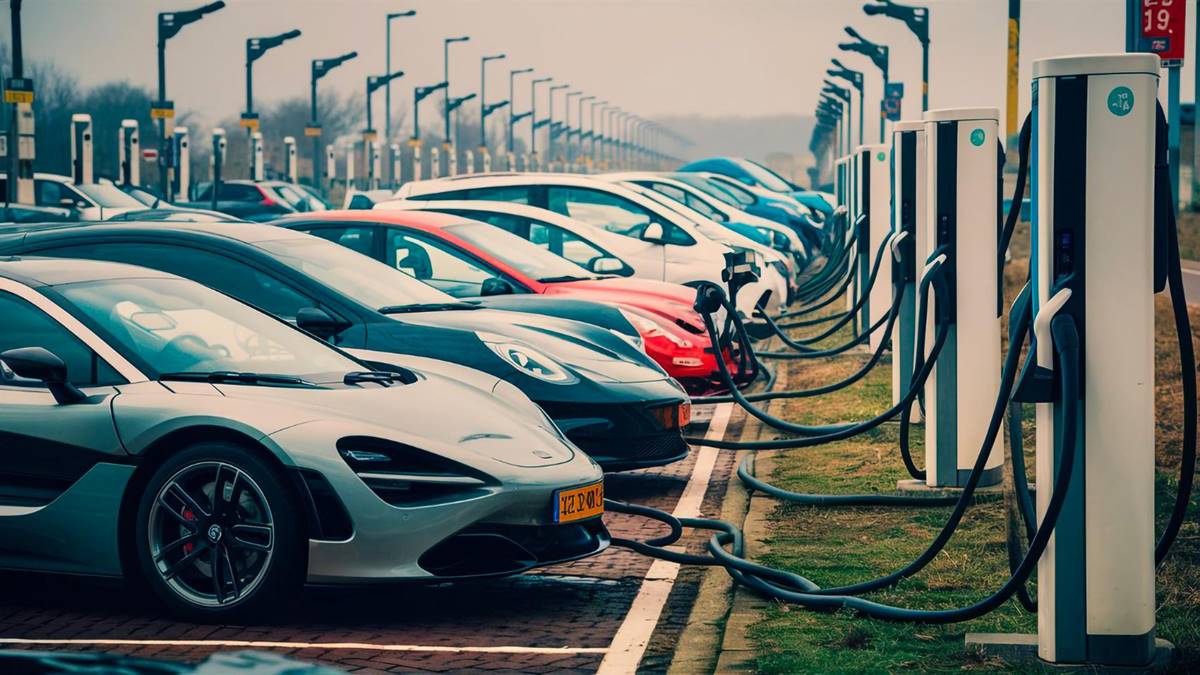Electric vehicles (EVs) have been steadily gaining ground in recent years, and now, in 2024, we’re standing at the cusp of a transportation revolution. Whether you’re someone already driving an EV or just considering making the switch, the rapid advancements in this field might leave you wondering: where exactly is the future of electric cars headed? Let’s dive into what 2024 and beyond hold for this exciting, ever-evolving industry.
The Rise of Electric Vehicles: A Global Trend
The shift towards electric cars is no longer just a trend; it’s becoming the new norm. Countries worldwide are introducing stricter regulations on carbon emissions and offering attractive incentives for people to choose electric vehicles over traditional gasoline-powered ones. Many governments have set ambitious targets to phase out internal combustion engine vehicles altogether within the next decade or two. But it’s not just governments driving this change—manufacturers are fully on board, too.
By 2024, virtually every major car manufacturer has either rolled out or is planning to launch a fully electric model. From luxury brands like Mercedes-Benz and BMW to more accessible options like Nissan and Hyundai, the range of electric cars is expanding at a fast pace. You can now find an EV for almost every budget and lifestyle, whether you’re looking for a compact city car or a high-performance SUV.
Charging Infrastructure: No Longer a Barrier
One of the biggest concerns people have when considering an electric car is charging. “Where will I charge it?” and “Will I have to wait for hours?” are common questions, but the answers are changing rapidly.
In 2024, the expansion of public charging infrastructure is happening at a breakneck speed. Charging stations are now popping up in parking lots, shopping centers, and even at fast-food chains, making it easier than ever to top up your battery. What’s more, ultra-fast chargers can now charge your car in as little as 15-30 minutes, which is a huge leap from the hours it used to take just a few years ago.
Additionally, home charging options have improved significantly. Many EV owners opt for installing home chargers, allowing them to plug in their car overnight and wake up to a full battery. Solar-powered charging systems are also becoming more affordable, letting you charge your vehicle while cutting down on your electricity costs.
Range Anxiety? Not Anymore
Range anxiety—the fear that your car won’t have enough battery to get you where you need to go—has long been one of the major drawbacks of electric cars. However, thanks to advances in battery technology, this is rapidly becoming a thing of the past.
In 2024, many electric vehicles now boast ranges of 300 miles or more on a single charge, easily competing with gasoline cars. Companies like Tesla, Lucid, and Rivian are pushing the boundaries of what’s possible, offering cars with even longer ranges. For most people, this means that a single overnight charge will be more than enough for their daily commute and errands, with plenty of juice left over for longer trips.
Sustainability Beyond the Battery
Electric cars are often marketed as the environmentally friendly choice, but it’s important to look at the bigger picture. While it’s true that EVs produce zero emissions while driving, what about the batteries themselves? Lithium-ion batteries, which power most electric vehicles, have a significant environmental footprint due to the mining of raw materials like lithium and cobalt.
In response to these concerns, manufacturers are focusing on making the production of electric cars more sustainable. Advances in battery recycling technology mean that the materials used in EV batteries can be recovered and reused, reducing the need for new raw materials. Additionally, some car companies are moving towards more ethical sourcing of battery components, ensuring that they’re mined in a way that minimizes environmental damage.
Autonomous Electric Cars: The Next Frontier?
While electric vehicles are undoubtedly the future of personal transportation, they may not be the end of the road when it comes to innovation. In fact, some experts believe that the future will belong to autonomous electric vehicles, or self-driving cars.
In 2024, we’re already seeing the early stages of this technology. Companies like Waymo and Tesla are testing autonomous electric cars that can drive themselves with minimal human input. Imagine hopping into your car, telling it where you want to go, and sitting back while the vehicle does the rest. While fully autonomous cars are still a few years away from becoming mainstream, the combination of electric power and artificial intelligence is poised to change the way we think about transportation.
The Future Is in Your Hands
As we move forward into 2024, it’s clear that electric vehicles are no longer just the cars of tomorrow—they’re the cars of today. With improving battery technology, a growing charging infrastructure, and an increasing focus on sustainability, there’s never been a better time to consider going electric. The future of transportation is evolving rapidly, and with it, the possibilities for cleaner, greener driving.
So, as you think about your next vehicle purchase, take a moment to consider what kind of world you want to drive into. Electric cars offer not just a way to get from point A to point B, but a chance to be part of something bigger—a global movement towards a more sustainable, eco-friendly future.
Source of our article: https://globalmozaik.hu/az-elektromos-autozas-jovoje-merre-tartunk-2024-ben/
You will find more interesting articles in the business category of the globalmozaik.hu online magazine.
